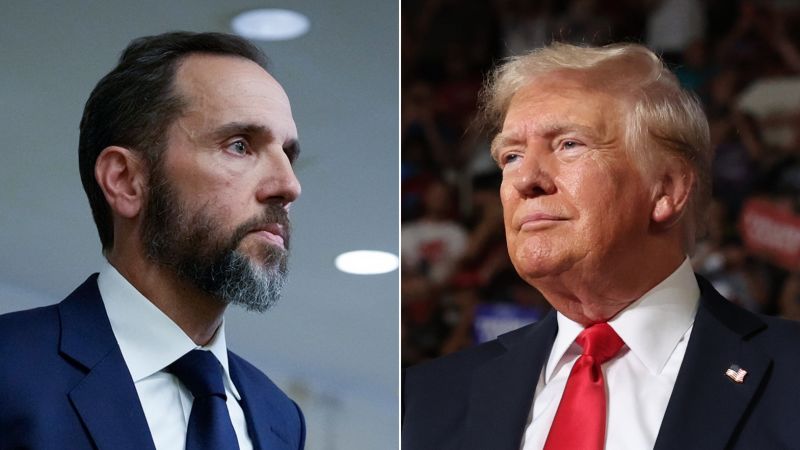Former President Donald Trump is accusing special counsel Jack Smith of attempting to influence the November presidential election by seeking to make new evidence and witness testimony public as voters are going to the polls. Trump believes that more redactions are needed in the brief filed by Smith under seal, which will provide a comprehensive view of the special counsel’s case accusing Trump of criminal actions in attempting to overturn the 2020 election. The brief is crucial in convincing the trial judge and higher courts that Smith’s case can survive following the Supreme Court’s ruling granting Trump some presidential immunity from prosecution.
The immunity filing is expected to offer the most detailed account yet of the case against Trump, featuring a nearly 200-page legal brief detailing the Justice Department’s grand jury investigation surrounding the 2020 election. The current dispute over redactions in the brief raises questions about how much the public will learn about the findings of the federal election subversion probe, especially considering that a Trump victory in November could potentially end the prosecution. Trump is against the disclosure of certain details in the sealed brief and believes that the special counsel’s office has politically motivated intentions in making witness statements public so close to the election.
US District Judge Tanya Chutkan is currently deliberating on how much of the prosecutors’ brief can be made public, with proposed redactions primarily focused on protecting witnesses’ identities and sources of information. Trump opposes the disclosure of certain details and is calling for additional redactions to protect witness titles and positions not specifically named in the case. Moreover, Trump argues that prosecutors should have to justify the public disclosure of witness statements included in the brief. The ongoing debate over redactions highlights conflicting perspectives on balancing witness safety and maintaining public access to the case against Trump.
In response to the filing of the sealed brief by Smith last week, Trump has criticized the proposed redactions as inadequate in protecting witness privacy and safety. The court’s decision on which parts of the brief will be made public will impact the extent to which new evidence against Trump, including witness testimony, will be revealed. This presents a challenge in determining the boundaries between transparency and privacy in a high-profile legal case with potential political implications. Overall, the evolving legal battle between Trump and the special counsel’s office underscores the complexities of pursuing justice while ensuring due process and fairness for all involved parties.


